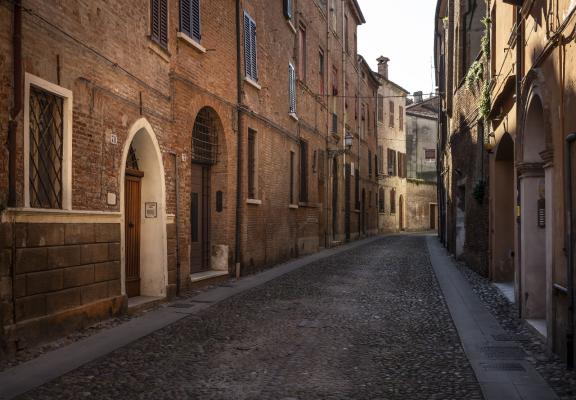Project summary
PROJECT PARTNERS
The JEWELS TOUR project is dedicated to preserving and enhancing the Jewish Cultural Heritage (JCH), which is an integral part of Europe's shared cultural legacy. Recognizing the importance of safeguarding this heritage for future generations, the project unites eight partners and three associated policy authorities from six EU countries—Italy, the Netherlands, Poland, Portugal, Germany, and Latvia—and one EU candidate country, Ukraine.
- Ferrara Municipality
- Breda University of Applied Sciences
- Ośrodek "Brama Grodzka - Teatr NN”
- Coimbra Municipality
- City of Erfurt
- Lublin Municipality
- Riga Investment and Tourism Agency
- Regional Development Agency of Lviv Region
Together, they aim to improve policy instruments to promote the optimal valorization of both tangible and intangible aspects of JCH.
PROJECT GOALS
The project focuses on making JCH more accessible and attractive, as this can drive significant cultural and economic growth across EU regions. By enhancing the valorization of JCH, JEWELS TOUR contributes to the construction of a more socially cohesive Europe with improved governance. The project seeks to empower policymakers with a comprehensive portfolio of best practices, expand their knowledge and skills in cultural heritage valorization, and strengthen the networks between public authorities and local stakeholders across different EU member states. Moreover, the project aims to create and promote replicable digital solutions for cultural heritage enhancement, further ensuring that JCH becomes a key driver of cultural and economic development in Europe.
PROJECT STRUCTURE
To achieve these goals, JEWELS TOUR employs a methodology that combines the technical expertise of advisory partners, such as Breda University of Applied Sciences, with a peer-learning approach. This approach fosters cross-fertilization and mutual exchange among policymakers, local stakeholders, and other key players involved in tourism development and cultural heritage protection.
The project is built upon several key pillars:
-
Stakeholder Engagement and Participatory Governance: A strategy that actively involves relevant stakeholders in decision-making processes, ensuring that the valorization efforts are inclusive and sustainable.
-
Comparative Analysis: This provides the scientific foundation for knowledge transfer, good practice sharing, and capacity building. By analyzing different approaches across regions, the project develops a robust base for informed policy development.
-
Mutual Learning and Policy Development: Through an intensive program of good practices exchange at both regional and interregional levels, the project promotes a collaborative environment where policymakers and stakeholders can learn from each other and refine their strategies.
